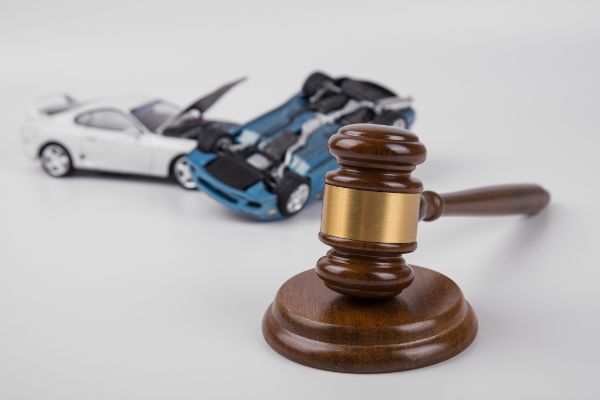Navigating the naturalization and citizenship process in Dallas can be complex and overwhelming. We provide clear legal guidance and skilled representation for those seeking to become U.S. citizens.
Our team understands the requirements, paperwork, and deadlines involved in every stage. We are committed to offering reliable advice to help clients avoid unnecessary delays and minimize stress.
If you’re looking for trustworthy legal support for your citizenship journey, our experience and dedication can make a meaningful difference.
Importance of a Trusted Naturalization and Citizenship Lawyer in Dallas
Legal complexities, strict requirements, and frequent updates make U.S. citizenship through naturalization a detailed process. Our experienced immigration lawyers help Dallas residents work through every step with professional legal advice and steadfast support. If you’re looking for guidance, consult a trusted naturalization and citizenship lawyer in Dallas to ensure your application is handled with care and precision.
Role of an Immigration Lawyer in Citizenship Cases
We play a crucial part in preparing naturalization applications and ensuring every form and supporting document meets the most recent requirements under immigration law. By evaluating eligibility for U.S. citizenship, we help clients understand pathways available based on their background and immigration history.
When legal questions arise, a trusted immigration attorney can clarify legal terminology and precisely interpret changing policies. This minimizes mistakes that can result in unnecessary delays or denials, safeguarding our clients’ interests.
Additionally, we are prepared to advocate for our clients if government agencies request additional information or schedule interviews. Our role includes direct communication with USCIS and attending citizenship interviews alongside clients when allowed.
Benefits of Professional Legal Representation
Retaining a professional immigration law firm provides a layer of protection throughout the legal process. As experienced attorneys, we are familiar with the strict requirements and expected timelines involved in seeking U.S. citizenship through naturalization.
Clients benefit from our ability to anticipate problems, such as missing documents, inconsistencies, or past legal issues that may impact their case. We work to resolve complications before submitting applications, which can prevent case denials and costly delays.
Our legal services also offer peace of mind, knowing that all paperwork is filed correctly, deadlines are met, and we are readily available to answer any questions. This level of professionalism contributes to a more efficient, less stressful naturalization journey.
Guidance Through the Naturalization Process
Navigating citizenship requires more than just filling out forms; the process involves background checks, interviews, language requirements, and civics tests. We guide clients through each stage, starting with the initial assessment to determine readiness and eligibility.
We help clients gather documentation, prepare for the naturalization interview, and study for required civics and language exams. Our team provides tailored advice, based on years of experience in immigration law, to address any specific concerns within a client’s case.
Throughout each phase, we remain available to clarify procedures, update clients on the progress of their cases, and address any government notices or requests. This support ensures clients are better prepared and informed at every step.
Comprehensive Naturalization and Citizenship Services in Dallas
We provide tailored guidance for eligibility assessments, application preparation, and navigating complex visa options. Our services address adjustment of status, family-based petitions, and legal support throughout the U.S. immigration process.
Eligibility and Requirements for U.S. Citizenship
We assist clients in understanding the eligibility criteria for naturalization, including lawful permanent residency, required physical presence, and continuous residence in the United States. Detailed review of good moral character and English and civics requirements is central to our approach.
To qualify, applicants must meet specific standards set by USCIS, such as holding a green card for at least five years (or three years if married to a U.S. citizen) and demonstrating attachment to the principles of the U.S. Constitution. We help gather necessary documents, verify lawful immigration status, and respond to requests for evidence, ensuring our clients are fully prepared.
We also clarify exceptions and accommodations, such as waivers for disability or age that may affect testing requirements. Clients benefit from a clear checklist and timeline for the naturalization process, minimizing errors that could delay citizenship approval.
Assistance With Form I-485 and Adjustment of Status
Our experienced team guides applicants through the process of filing Form I-485 for adjustment of status, helping eligible individuals become lawful permanent residents without leaving the U.S. We ensure all required supporting documentation is included, such as identity documents, proof of lawful entry, and admissibility evidence.
We monitor deadlines, help manage concurrent applications (like Form I-130 or I-765 for work authorization), and offer practical advice for responding to USCIS requests or interviews. Our staff keeps clients informed about possible processing times and changes to USCIS guidelines.
Special attention is given to those with complicated immigration histories or who may face inadmissibility issues. We address waivers, prior visa overstays, and potential grounds for denial, drawing on our experience with complex cases.
Support With I-130 Petitions and Family-Based Immigration
For family members seeking to join loved ones in the United States, we assist in preparing and filing Form I-130, which establishes the qualifying family relationship. Our detailed approach ensures that documentary evidence, relationship proofs, and supporting affidavits are properly collected and submitted.
We clarify the stages involved in family-based immigration, including priority dates, visa bulletin updates, and consular processing for eligible beneficiaries outside the U.S. Our legal team assists with K-1 fiancé(e) visas, K-3 marriage visas, and child derivative visas, guiding families through each requirement.
We also handle adjustment of status for spouses or children already in the U.S., respond to USCIS requests for evidence, and advise on how changes in immigration policy or processing times may affect cases. Our goal is to minimize delays and ensure successful petition approvals.
Navigating Visa Options and Processing
We provide detailed evaluations for all major immigrant and nonimmigrant visa categories, including H-1B employment-based visas, F1 student visas, E investor visas, and diversity visas. Our support spans initial application to consular interviews and responding to USCIS or embassy requests.
For clients facing complex immigration needs—such as transitioning from a nonimmigrant to immigrant status, family reunification, or seeking asylum—we outline all lawful visa options and strategies available. Our assistance extends to the K-1 and K-3 visas for fiancés and spouses, as well as support with the I-129F petition.
We help clients understand current visa appointment wait times, documentation checklists, and key steps for successful visa processing. Our commitment is to provide clear guidance and professional legal assistance, so clients understand every stage of the U.S. immigration process.












